How Do You Avoid Hitting The Wall In A Marathon?

‘Hitting the Wall’, or ‘bonking’, can happen to a runner towards the end of a marathon. It can affect all endurance athletes, like long distance triathletes and cyclists.
The wall is figurative but it feels painfully real and it’s going to mean that the rest of your race will be a tough struggle – physically and mentally.
But there’s good news: it’s possible to avoid hitting the wall! So follow this guide and you’ll (hopefully!) never hit the wall again. You can jump to the following sections:
- What does hitting the wall or bonking in a marathon mean?
- Why do runners hit the wall in a marathon?
- How do you avoid hitting the wall in a marathon?
- How do you deal with hitting the wall in a marathon?
- Watch Out: There’s a second wall!
- Will you hit the wall in a half marathon?
WHAT DOES HITTING THE WALL OR BONKING IN A MARATHON MEAN?
When running, our body’s primarily energy source is glycogen, which it gets from the carbohydrates that we eat. Ahead of a marathon or long run we should carb-load to make sure we have as much stored energy as possible (like filling the car’s tank up before a long drive).
If we arrive at the start line of a race properly fuelled, then our body can carry enough energy to run for 16-22 miles / 26-36km. The trouble, of course, is that a marathon is 26.2 miles or 42.2km!
When the glycogen runs out, we hit the wall. Hitting the wall feels like the road under your feet has turned into wet cement and every step is so much harder. You feel weak and you can’t think clearly. You begin to doubt whether you can even make it to the finish line.
To understand this properly, and how to avoid the wall, it helps to know a bit of the science, which we’ll cover in the next section.
***
Here’s Jess and Mo talking all about hitting the wall in a marathon.
WHY DO RUNNERS HIT THE WALL IN A MARATHON?
Glycogen is the easiest source of energy for us to use to power everything we do – and that includes our brain, which uses around 20% of the total glycogen stored in the body. During aerobic exercise, like running a marathon, we rely on glycogen.
The carbohydrates we consume are converted into glucose, which are then stored as glycogen. We mostly store this glycogen in our muscles, and a small amount in the liver. The average person can store around 600g of glycogen, which is enough to run most of a marathon – but not a whole one (more on that later). The reason we carb-load before a long run is to maximise the stored glycogen.
When we run out of glycogen our body doesn’t just shut down, and it can rely on an alternative source of energy: fat.
We carry a huge amount of potential energy stored as fat. But fat is much harder for the body to convert into energy. The transition from using glycogen as fuel to using fat is the exact moment we hit the wall.
A large part of why it feels so difficult to carry on running at the same speed when we hit the wall is to do with oxygen. Glycogen doesn’t require much oxygen to convert it into energy, so as our breathing increases during a marathon, most of that oxygen goes towards supporting the muscles, essentially by delivering oxygen to them and removing carbon dioxide.
Fat requires a lot of oxygen to convert it into energy, so if we run out of glycogen, our body has to reprioritise the oxygen use. Our breathing rate continues, but we physically slow down because the body has to use that oxygen to create energy from fat – it’s essential that the body and brain have energy, but it isn’t essential that we keep on running (even if we really want a PB!).
At some point during a marathon you will run out of glycogen and out of readily available energy, but there’s a way to delay or avoid that: you consume more carbs while you run.
HOW DO YOU AVOID HITTING THE WALL IN A MARATHON?
To begin, you need to make sure you’ve filled up your tank – in other words, you’ve got to eat enough carbohydrates in the day or two before a marathon (and before your longest runs). This is why you carb load before the marathon as it allows your body to store the carbs as glycogen, which you use as fuel for your runs.
For most people there’s an optimum amount of carbs to consume, but it’s a personal thing you need to figure out for yourself. A general guideline is 6-12g of carbs per kilogram bodyweight. It’s something you should aim to practise in training to understand what carbs work best for you and how much.
Then you want to be topping up your glycogen stores with a pre-race breakfast with plenty of carbs.
Then we need to have energy drinks, gels or chews during the race. Most marathoners should aim to consume 30-60g of carbohydrates per hour that they are running (some elite runners can tolerate 100g per hour, but that’ll be too much for most people). You should start taking on fuel from within the first 30 minutes of your run and don’t wait until you feel hungry or tired.
Most energy gels have 20g-40g of carbohydrates in them, so that means taking two gels per hour. You can also have an energy drink. Here’s a carb calculator to help you work out what carbs to take during a race, plus some alternatives to gels.
Taking on gels, chews and energy drinks is something you have to try in training to learn what energy works best for you, and how much you can tolerate.
If you can take in at least 30-60g of carbohydrates per hour during a marathon then you should have enough extra energy to avoid hitting the wall, especially if you can manage the higher end of that range.
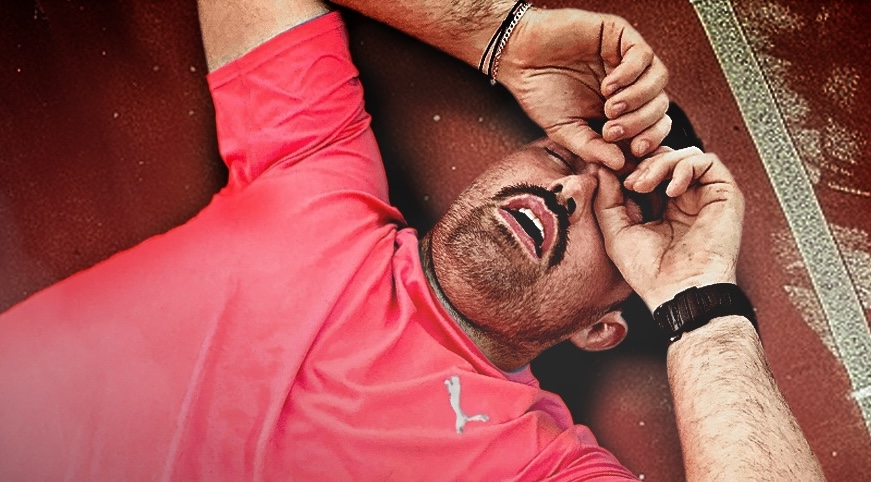
HOW DO YOU DEAL WITH HITTING THE WALL IN A MARATHON?
Sometimes it’s unavoidable that we hit the wall in a race, especially if we struggle to take on enough calories while running. So if you hit the wall, what can we do about it?
Unfortunately, it’s not as simple as just consuming more carbs and immediately recovering. It can take hours to replenish the glycogen if we’re severely depleted.
So if you hit the wall, the only thing you can do is slow down. Even if you want to carry on running at a faster pace, your body won’t respond.
Focus on your breathing and do your best to consume more energy – drink, gels, chews, whatever you can get – and more water (being dehydrated can also make you feel worse).
Do your best to stay positive and safe on the course. Just keep on moving forward, even if that means having to slow down or walk.
Sometimes we just have a bad day, but we’ll still get to that finish line. Then it’s going to be important to try to eat and drink to replenish the calories you’ve used in the run.
WATCH OUT: THERE’S A SECOND WALL!
If the first wall wasn’t scary enough, there’s also a second wall.
The first one can be avoided by ensuring you carb-load adequately and take on enough extra energy and fluid during your marathon.
The second wall is more to do with your training. If your body isn’t strong enough, fit enough, or conditioned enough to handle the effort required to run a marathon, then no matter how many gels you take down during the race, your legs are going to struggle.
The best way to try and avoid this second wall is to do your best to complete your training programme, and especially all the longer runs – doing several long runs of 16-22 miles / 25-35km or up to four hours are essential. If your body is used to running a long way in training, it’s going to feel less difficult in the race. Doing strength work with weights can also help you here.
There may also be a third wall which is psychological, but that one is likely related to the other two walls. When we struggle from a lack of energy (remember that the brain uses a huge amount of glucose as energy), or we don’t have the fitness or conditioning to carry on, our mind starts to think negatively, and that can then make it feel like we’re having an even harder time. Marathons are a physical activity, but they require a lot of mental strength to keep us going.
To stay positive, it can help to have a mantra to keep you going. You can think about your reasons why you’re running a marathon. You can try and distract yourself by high-fiving as many people in the crowd as possible, or talking with other runners. Here’s how to work on your mental strength and resilience as a runner.
DO YOU HIT THE WALL IN A HALF MARATHON?
You shouldn’t hit the wall in a half marathon, assuming you’ve gone into the race properly fuelled.
The best way to ensure that you don’t hit the wall in a half marathon is to eat a meal which is mostly carbohydrates the evening before the race (pasta, pizza, rice), and then have a breakfast with carbs like oats or a bagel. This will mean your body should have enough stores of glycogen to use as energy.
You can also top up your glycogen during the race by taking one or two gels, or having an energy drink. Most runners can benefit from doing this.
***
Can Jess beat The Wall in her three-hour marathon attempt?


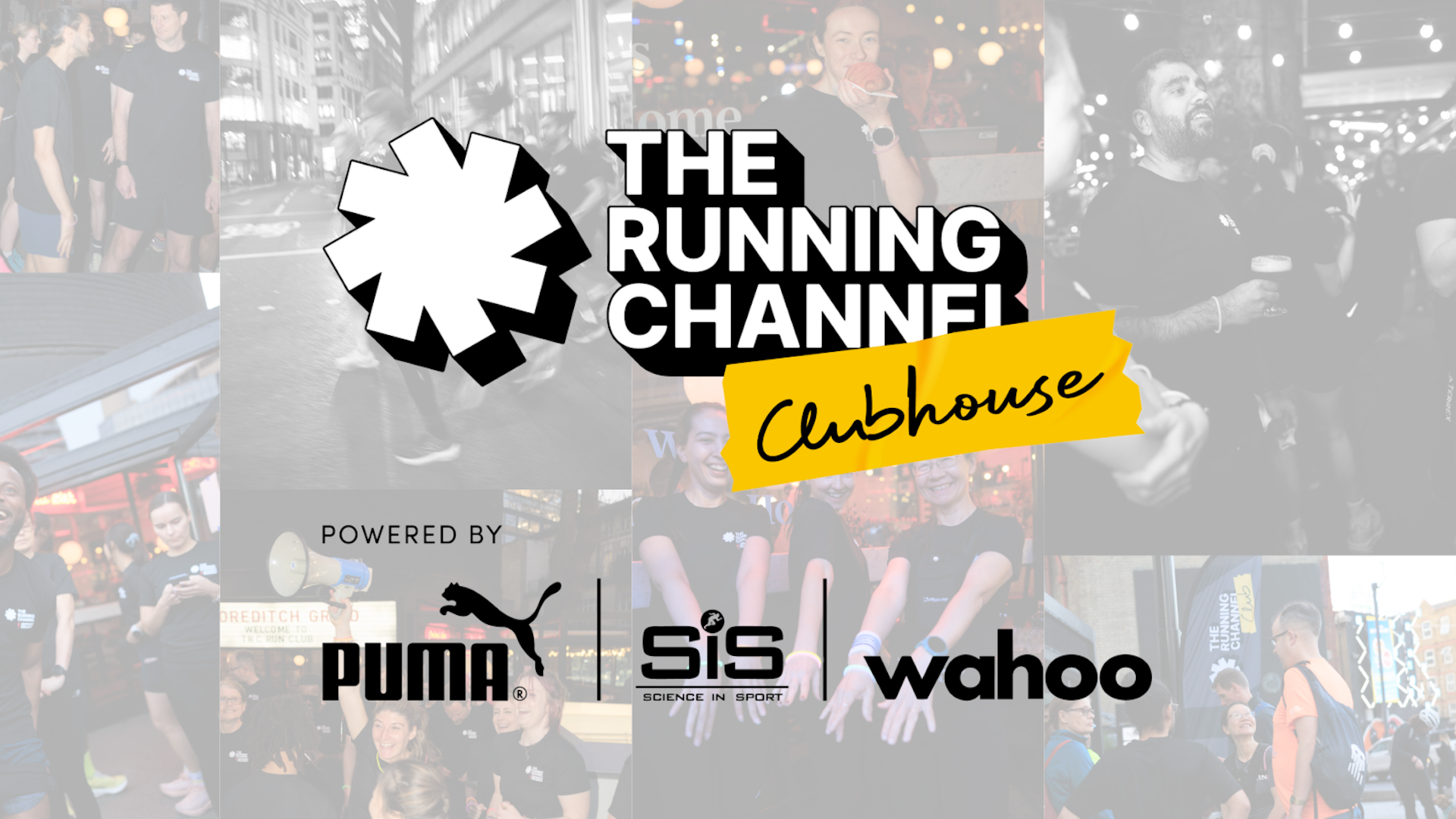
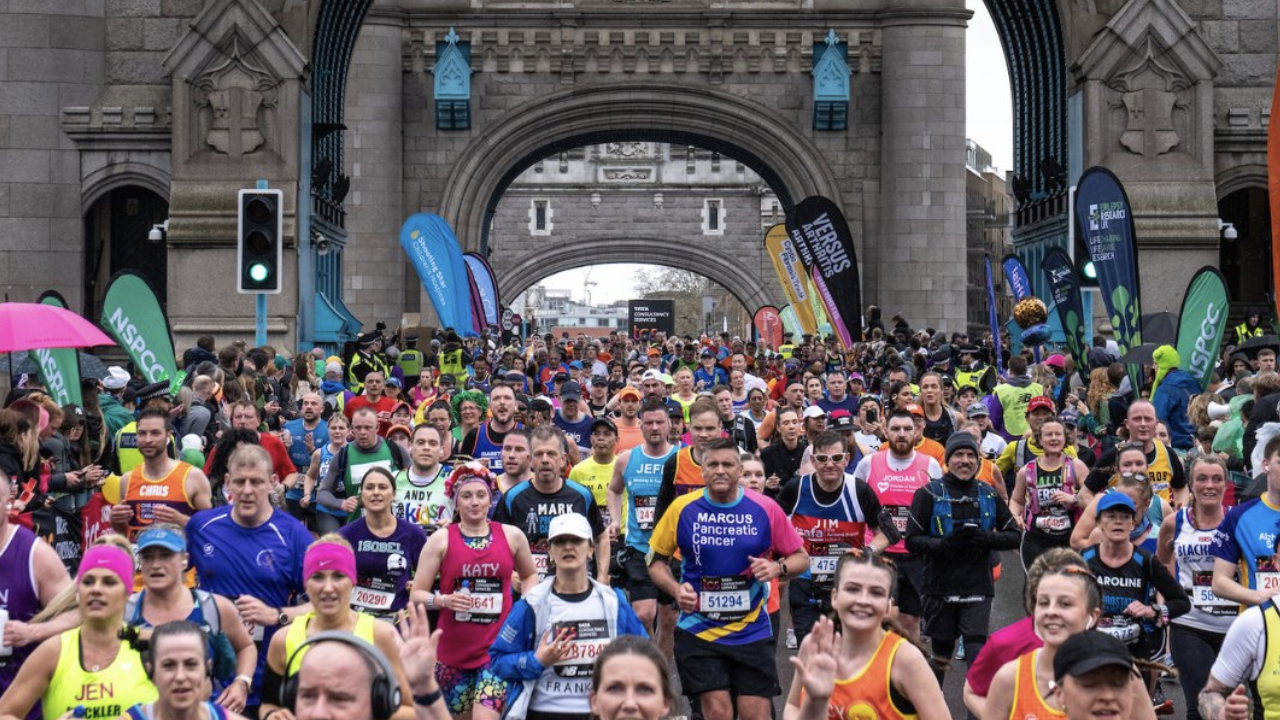


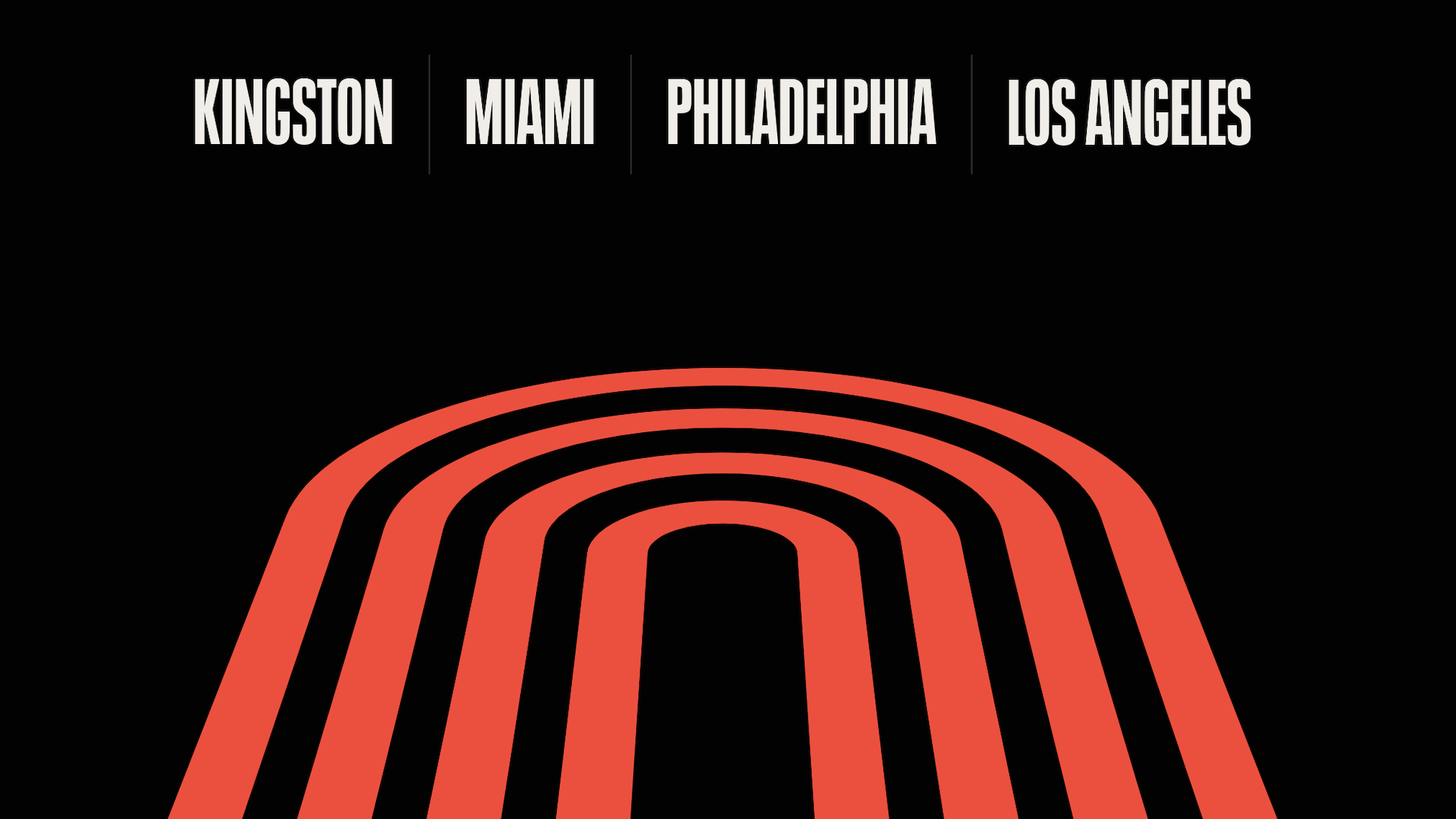


















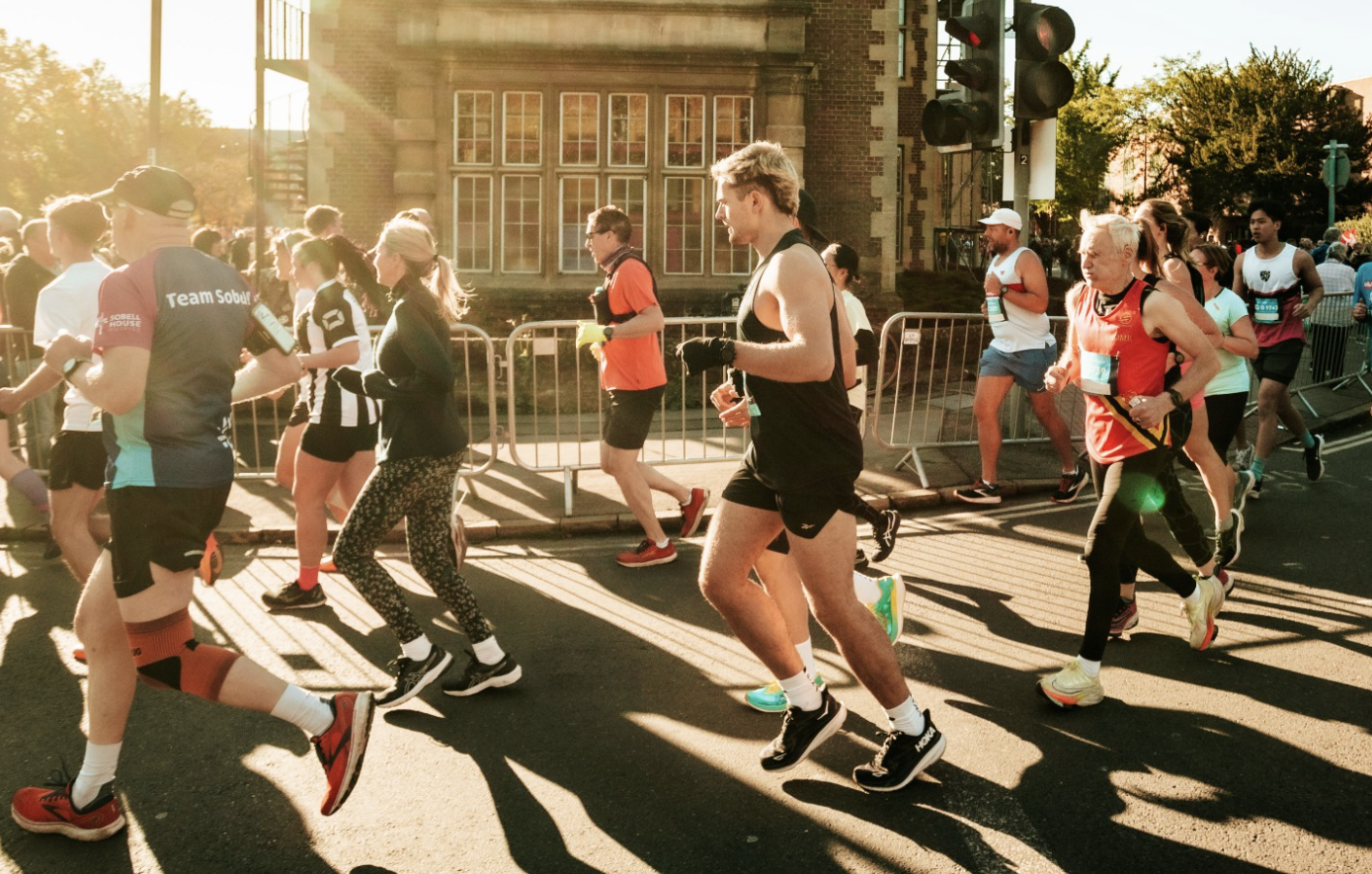

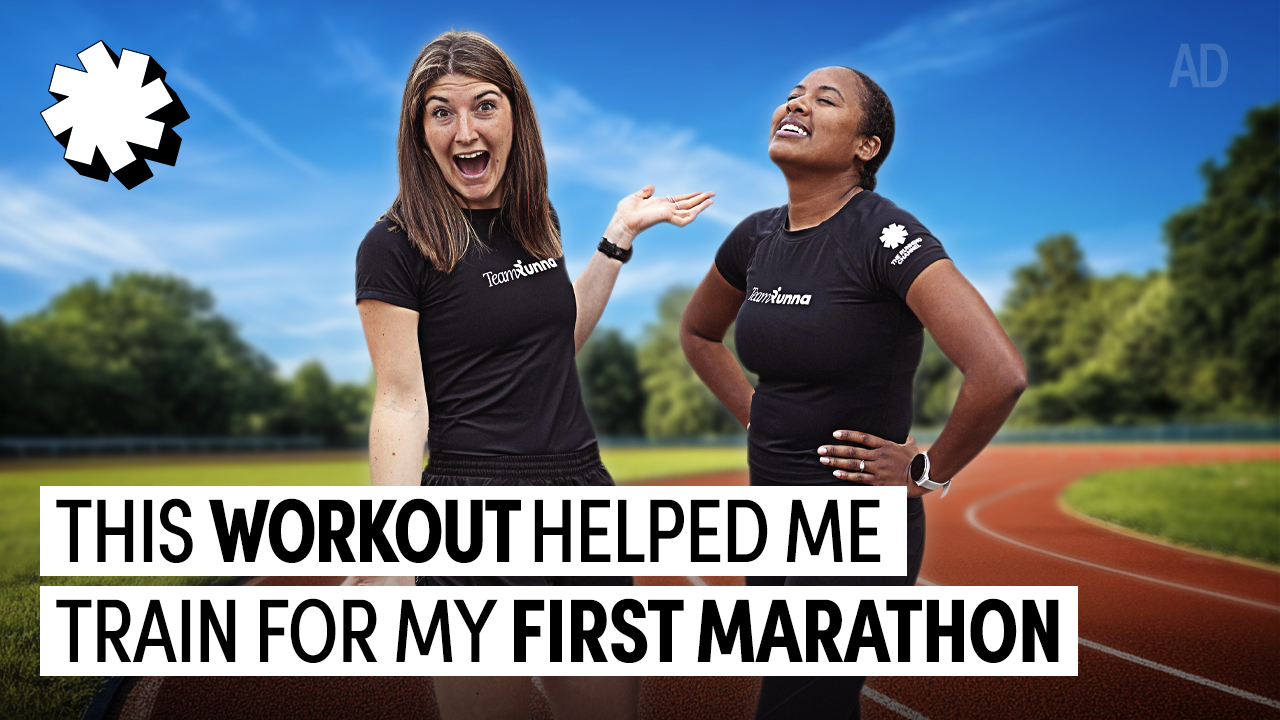

Running News
Ingebrigtsen Stars at World Athletics Indoor Championships 2025 – Plus All The Winners!
Sam Ruthe Is First 15-Year-Old To Run A Four-Minute Mile!
Eliud Kipchoge Will Run The 2025 Sydney Marathon!